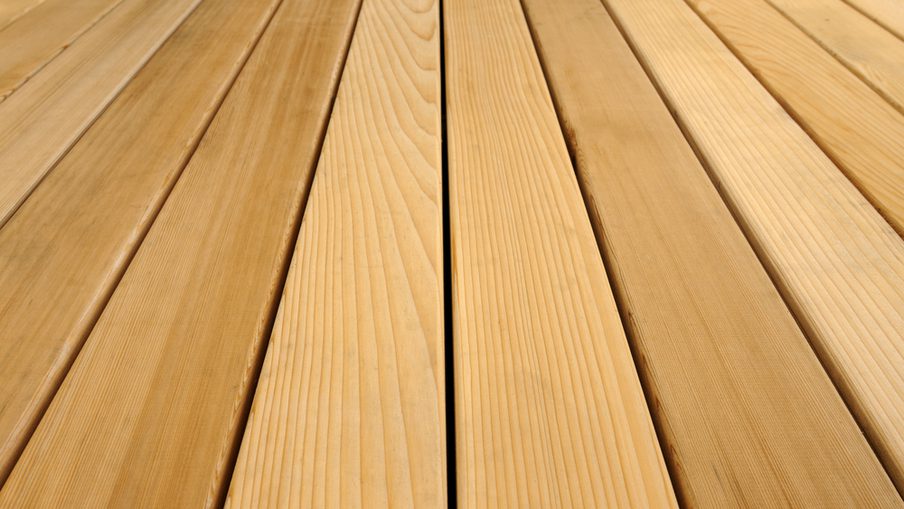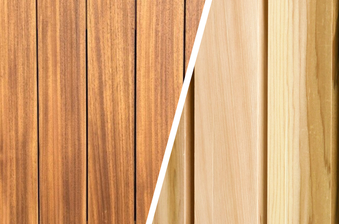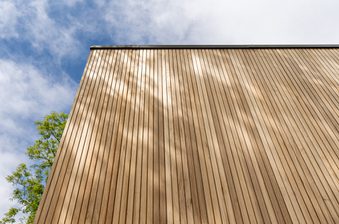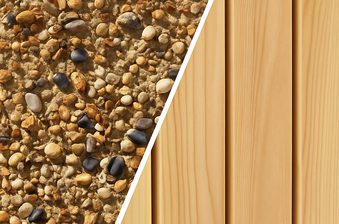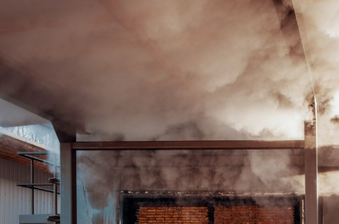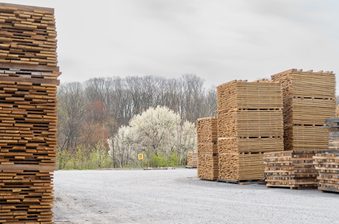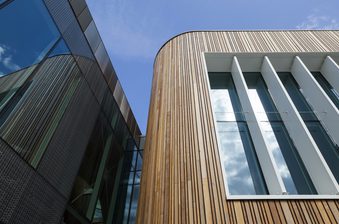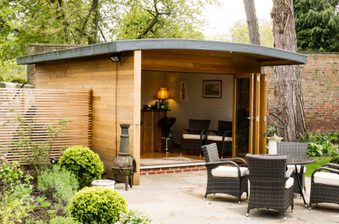With its alluring reddish-brown hues, excellent natural durability and sweet scent, Western Red Cedar is a go-to timber for any outdoor project. But, if you’re after something slightly different, there’s plenty of other woods that step up to the job superbly!
Given its popularity, prices for Western Red Cedar can sometimes be prohibitive.
But with thousands of glorious species of wood from right across the world, cedar is by no means your only option — and you might be able to save a pretty penny along the way.
Let’s take a look at five outstanding cedar substitutes for your next cladding, decking, fencing or other exterior project.
Western Red Cedar alternatives & substitutes for your next project
1. Alaskan Yellow Cedar— stunning, durable, easy-to-finish and more budget friendly
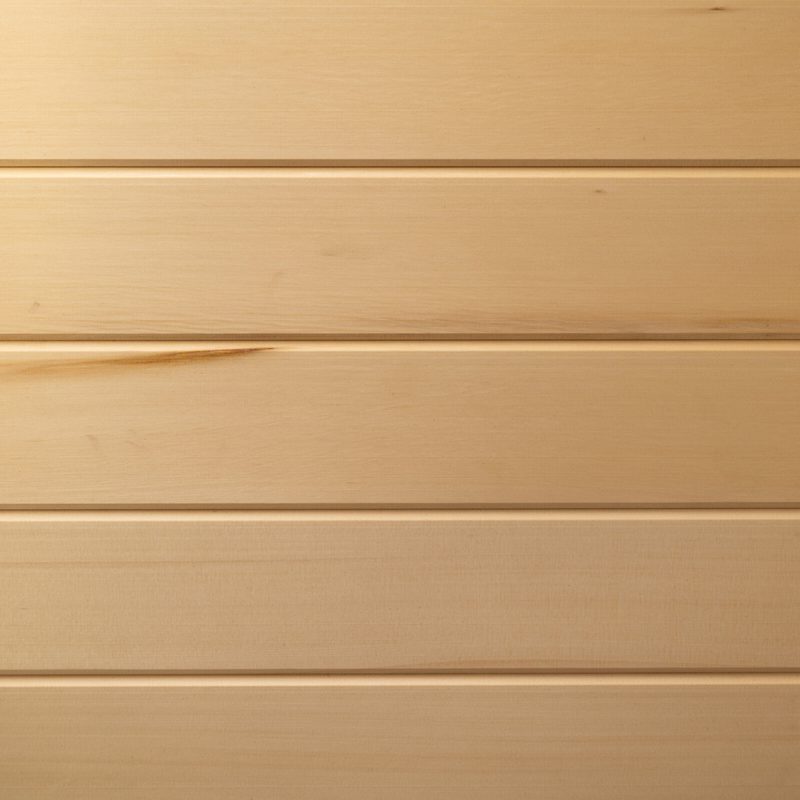
Not only does the name bear similarity, but Alaskan Yellow Cedar compares closely to Western Red Cedar in terms of its natural properties.
Like Western Red Cedar, Alaskan Yellow Cedar boasts remarkable insect and decay resistance; ideal for cladding, fencing, decking or other exterior DIY projects. It’s one of the world’s most durable woods.
Usually straight-grained, the species’ whitish-pale yellow colour makes it a superb, versatile and naturally aesthetic choice. It provides an excellent neutral base and can be easily stained or oiled to more of a red cedar tone.
A product like Owatrol Textrol HES (Cedar) provides your Alaskan Yellow Cedar with the sought-after tones of Western Red, whilst providing some handy cost savings along the way.
Alaskan Yellow Cedar does tend to slowly darken with age, although if left untreated outdoors, it will slowly weather a distinctive silvery-grey (like all timbers!).
Officially designated a ‘species of least concern’, rest assured that Alaskan Yellow Cedar is an environmentally-conscious choice, too.
2. Douglas Fir— a durable, rock-solid & affordable all rounder
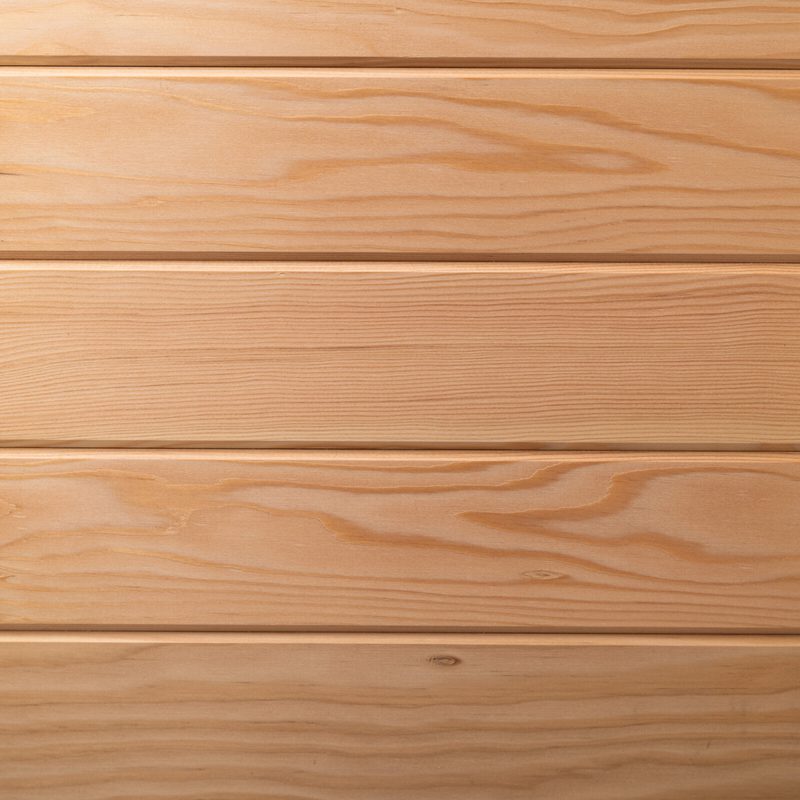
Slow-growing, almost knot free and with a fine grain, Douglas Fir’s irresistible creamy yellow-to-brown hues have won it many fans — and that’s not to mention that it typically comes in around 35–40% cheaper than Western Red Cedar.
Don’t be fooled by its status as a softwood; Douglas Fir can be as tough as nails. Much like Western Red Cedar, it hails from the forests of Canada. An excellent ‘all-rounder’ timber, fir has great natural durability, high resin content and top-notch density.
As such, this species performs fantastically for internal and external cladding, as well as decking, fencing, structural work and other landscaping projects.
Certainly a wood to bear in mind if you’re looking to deviate from cedar!
Douglas Fir has grown dramatically in popularity as a substitute to Western Red Cedar.
3. Siberian Larch— a hugely popular, visually stunning, budget-friendly alternative to Western Red Cedar
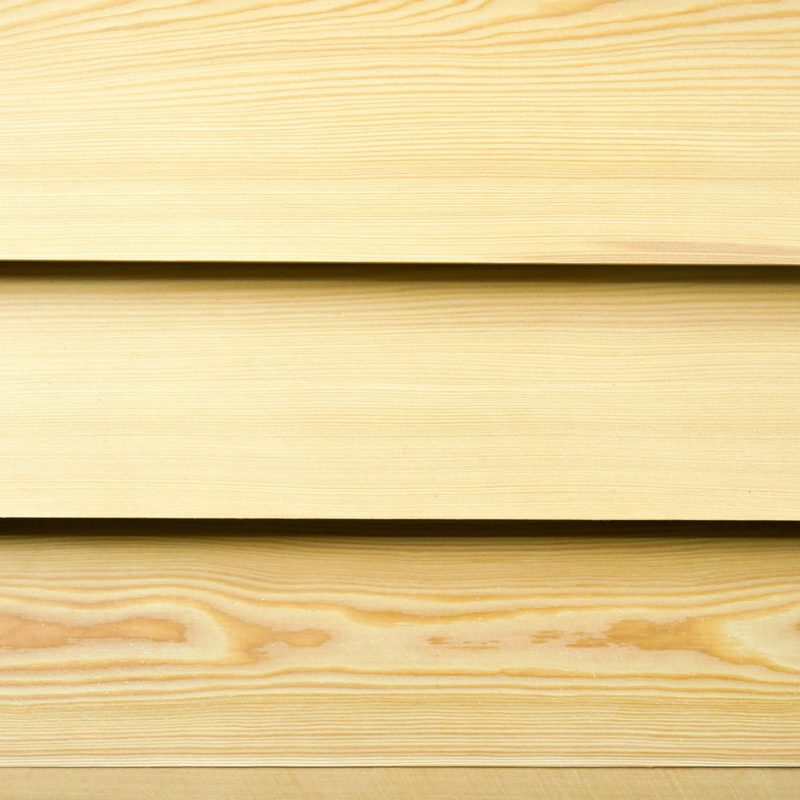
Larch’s glorious golden yellow colour differs somewhat from Western Red Cedar’s cherished reddish-brown hues, but this is still a visually stunning species that slots seamlessly into almost any home improvement project.
As a result of its punishing ‘upbringing’ in Siberia, Larch is highly resinous and slow-growing, packing in incredible natural durability and scratch resistance, suiting it to cladding, fencing and decking — just like cedar. Larch is one of the ‘hardest’ softwoods there is.
In fact, such is their similarity, we’ve written an entire blog post dedicated to comparing Western Red Cedar and Siberian Larch cladding.
If you’re running a tighter budget, Siberian Larch is a particularly great cedar alternative. ‘B’ grade Siberian Larch can allow you to make further savings, as well as providing more knots (and arguably rustic character!) compared to the clear-grade ‘A’ version.
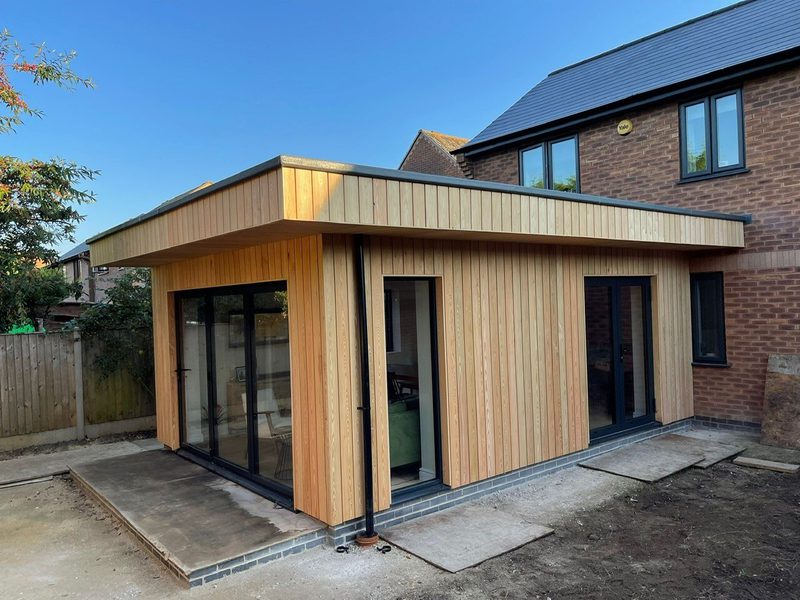
4. Heat-treated Ayous (& other modified timbers) — a clear grade, high-performance, sustainable option
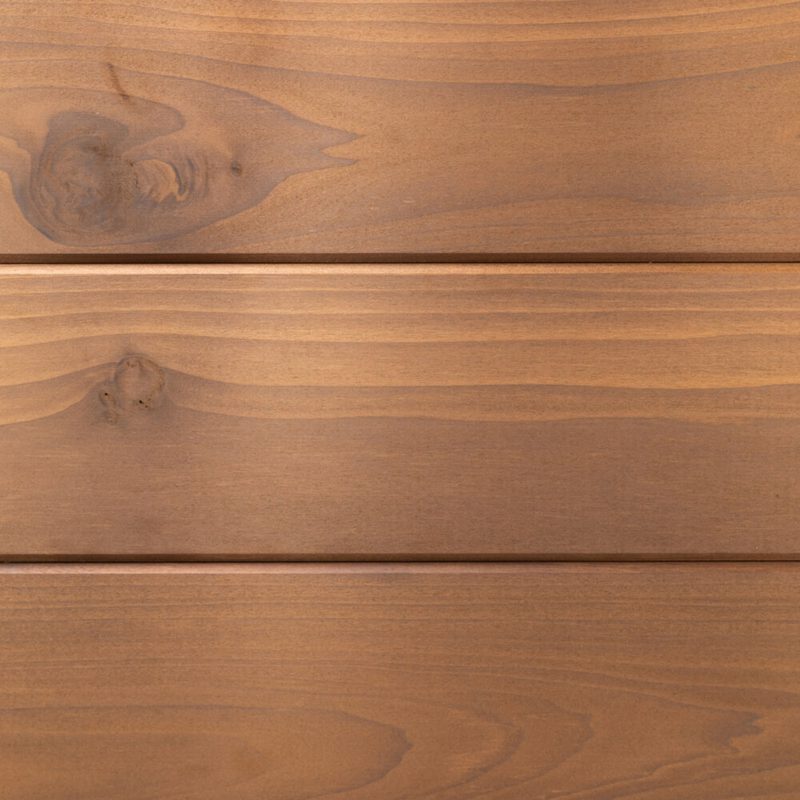
Although Ayous starts life as a pale-yellow timber — it’s also known as African whitewood — after an eco-friendly process of thermal modification, this species gains some gorgeous mid-brown hues that share some similarity to Western Red Cedar.
Thermo-Ayous is an undeniably stunning product for cladding or fencing, but the treatment process causes chemical changes that make it incredibly durable, stable and long lasting, with the potential for 50 years of service life.
Not only does Thermo-Ayous provide a tropical, exotic take on Western Red Cedar whilst compromising on none of the durability, it typically comes in at a slightly cheaper cost.
Thermo-Ayous isn’t the only modified timber that makes for an exceptional alternative to Western Red Cedar; be sure to check out Thermo-Tulipwood CAMBIA®, another treated clear-grade softwood. Or, for a bit more character with some knots, ThermoWood® might be up your alley.
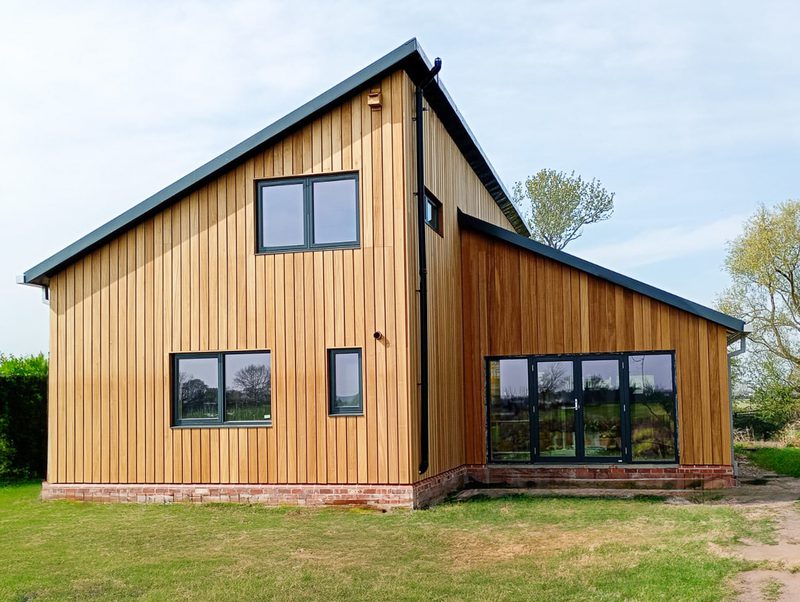
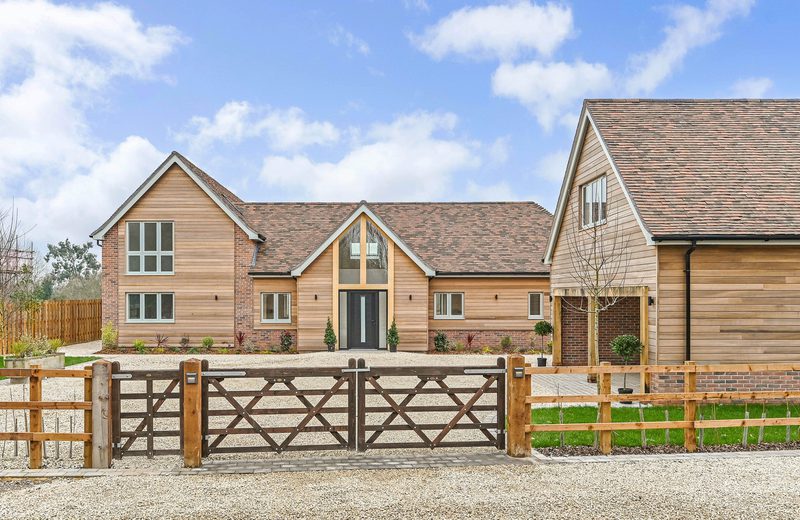
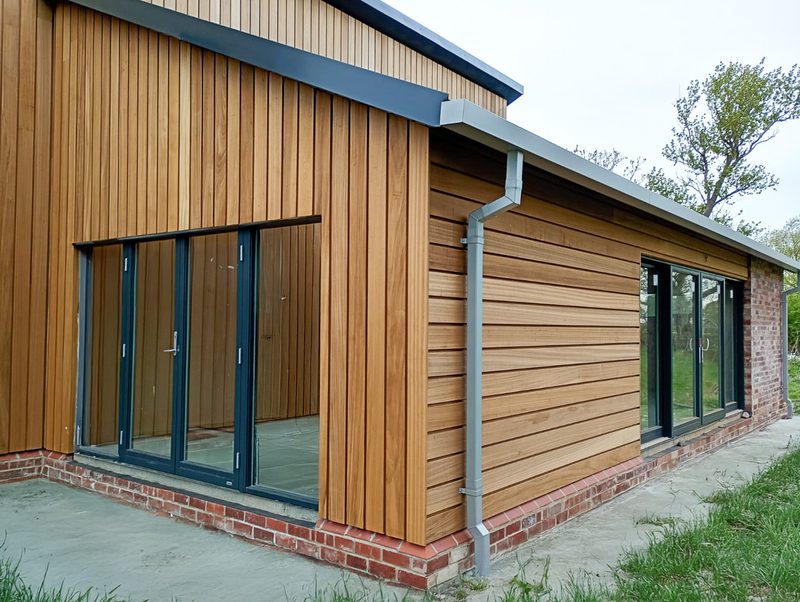
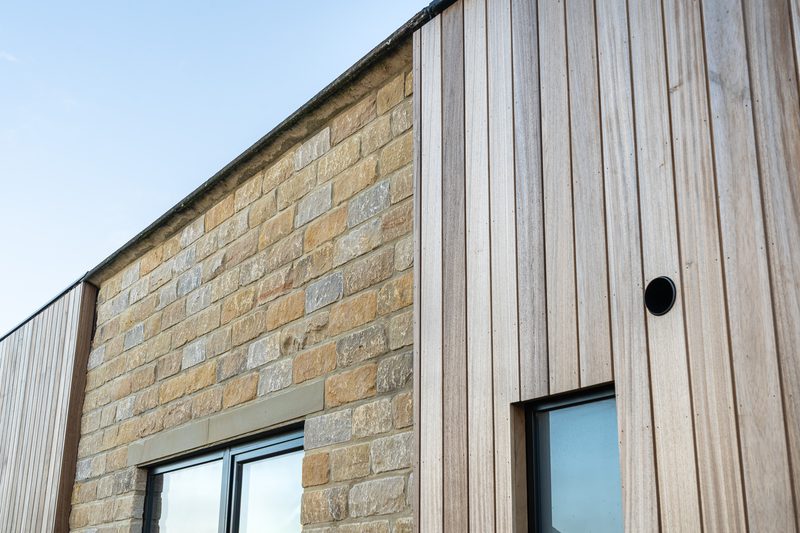
5. European Oak— a timeless species available in longer lengths at a reduced price
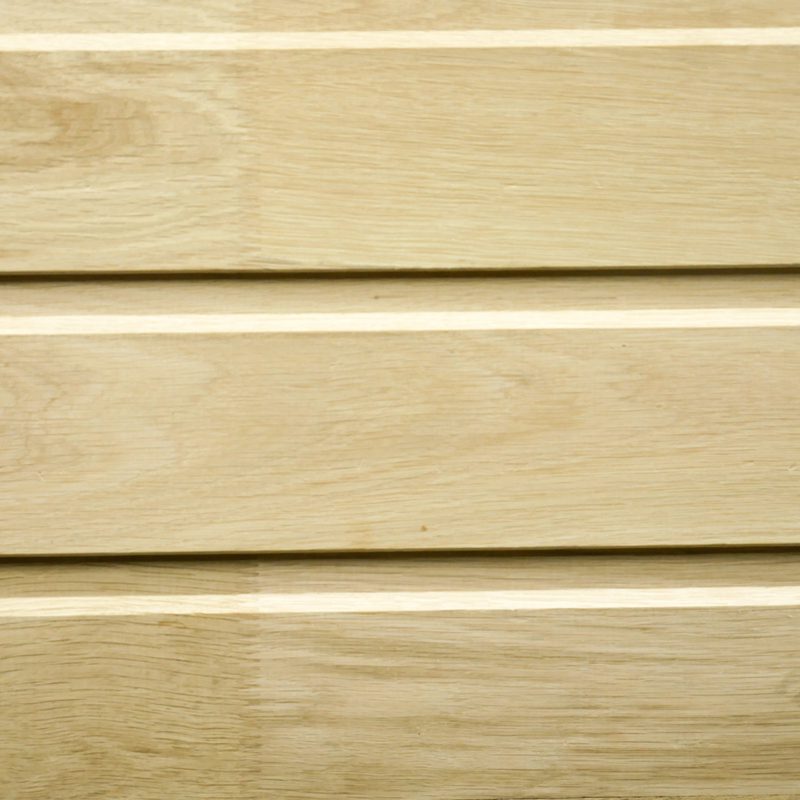
You can’t argue with European Oak’s widely-appreciated good looks, versatility and longevity, in particular when used internally. It compares very much to cedar in terms of beauty and applicability for almost any project, especially when finished with Owatrol Textrol HES.
The European Oak cladding and decking that we stock is finger jointed, which means it’s available in longer lengths containing between five and seven pieces. By allowing any knots or ‘defects’ to be edited out, finger jointing can result in an exceptionally clear-grade, special piece of timber, providing a cost saving compared to solid piece production — as well as added stability.
Western Red Cedar and European Oak used to create a magnificent barn conversion.
Costs & pricing up a project: Western Red Cedar vs. other types of wood
Cost can be the elephant in the room, especially if you’re searching for something that’s slightly easier on your wallet than Western Red Cedar. When you enquire with us, your project handler will be with you at every stage and help to finalise the cost, but it’s always possible to estimate.
Let’s say you’re working on a typical garden room (3.8 length x 2.4m width, 2.2m height). To clad all walls and allow for an 8’ bifold door in our ever popular DTC2 V-groove cladding profile, you’ll need 22m², or 24m² when accounting for 10% for waste on top. In various different species, this would cost:
- Western Red Cedar — approx. £1940 (£80 per m²)
- Thermo-Ayous — approx. £1,750 (£73 per m²)
- Alaskan Yellow Cedar — approx. £1,450 (£60 per m²)
- Douglas Fir — approx. £1,260 (£52 per m²)
- Siberian Larch (‘B’ and ‘A’ grade) — approx. £915–1,200 (£38–50 per m²)
Note that prices are correct at time of writing and are subject to change.
Need a Western Red Cedar alternative for your next project?
Working on a cladding, decking or fencing project? We’re a leading UK importer and stockist of a wide range of beautiful, dynamic, durable timber species — including all of those listed above, as well as many, many more.
As a third-generation family company, customer service is absolutely key to us. When you enquire, you’ll be assigned a project handler who’ll be with you at every stage: from costing up to those finer details and the final delivery of your product.
To get started, or for some expert advice from our team, click the button below!
Get in touch
